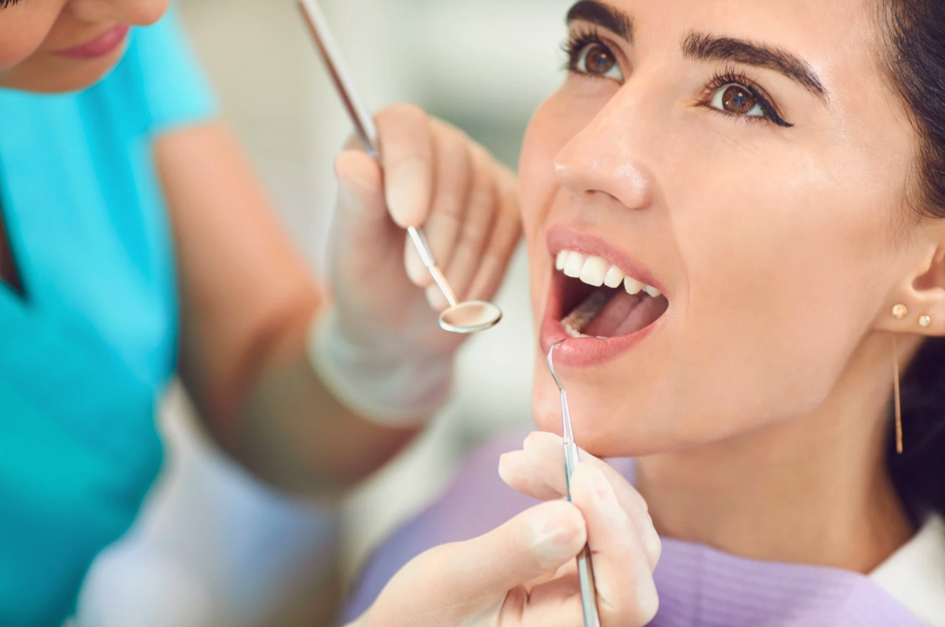
Treatments

Dental examinations
A dental examination is a vital part of maintaining your oral health. During this appointment, our dentist will thoroughly check your teeth, gums, and mouth for any signs of decay, gum disease, and other oral health issues including doing an oral cancer screening. We may also take x-rays to get a clearer view beneath the surface and ensure everything is developing properly. Your visit will also include a discussion about your dental habits, any concerns you may have, and personalised recommendations to keep your smile healthy.
Most dental check-ups are recommended six-monthly, however if your dentist deems you are low risk for dental decay and gum disease you may need to be seen less frequently – yearly or eighteen-monthly.
Regular dental exams help catch problems early; saving you time, discomfort, and money in the long run.

Children’s dentistry
Young teeth need just as much care and attention as adult teeth. We recommend introducing your child to the dentist as soon as their first teeth start to appear. Even though we won’t be able to see or examine much at this age, early visits can help your child get used to visiting the dentist and reduce any nervousness. You can also get helpful advice about caring for your child’s teeth, including brushing tips and dietary advice.
Children’s mouths are constantly changing from when they first develop teeth into their teenage years. We recommend six-monthly check-ups for all under 18s to catch any decay or developmental problems at the right stage. The combination of regular visits to the dentist from a young age, developing a good dental care routine at home and encouraging a healthy diet will help keep your child’s teeth in a great condition.
All under 18’s who are resident in the Bailiwick of Guernsey are entitled to one free check-up per year. Please contact our reception team for more information.

Emergency dentistry
People aren’t always sure whether they have a dental emergency. Our team are sympathetic to anyone who is in discomfort, whether you’re suffering from toothache or have lost a filling, we can help.
We have a limited number of emergency appointments available each day for our registered patients and provide timely care based on your symptoms. To improve your chances of getting an appointment, please give us a call as early as you can in the day. Once the problem has been diagnosed, your dentist will determine whether you need urgent treatment there and then, or whether they can make you comfortable and bring you back for the necessary treatment.
If you are experiencing toothache, swelling, prolonged bleeding, or if you have suffered trauma, a lost filling or a broken tooth please visit our dental emergencies page which contains information on the next steps.
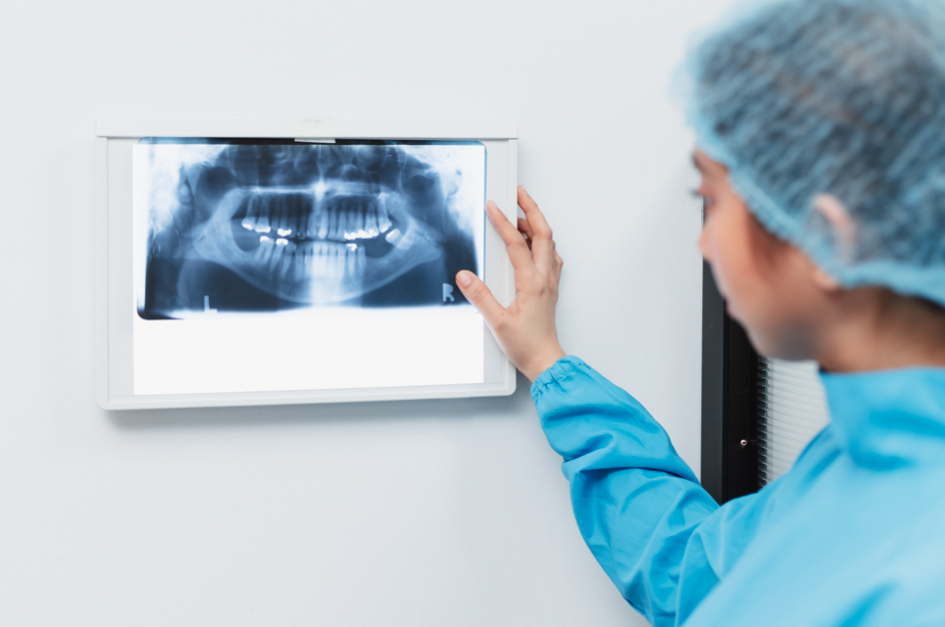
Dental x-rays
X-rays show what is happening inside and around the tooth and its roots. They show decay, gum disease, abscesses, bone loss and teeth that haven’t come through yet.
Your dentist will only take x-rays when they are needed. Bitewing x-rays are taken every 2-3 years and are taken to show any decay that isn’t visible in the mouth, such as between the teeth. These x-rays show in between your premolar and molar teeth. A periapical x-ray is taken of a specific tooth or specific area of the mouth, if you are experiencing problems. These x-rays shows the whole of the tooth including the root. There are also large x-rays that are taken of your jaw and teeth. These are called panoramic or OPG x-rays and are taken to find teeth that haven’t come through, to look for wisdom teeth, or to look at the positioning of the teeth.
The radiation in dental x-rays is very low and will be discussed with you by your dentist.
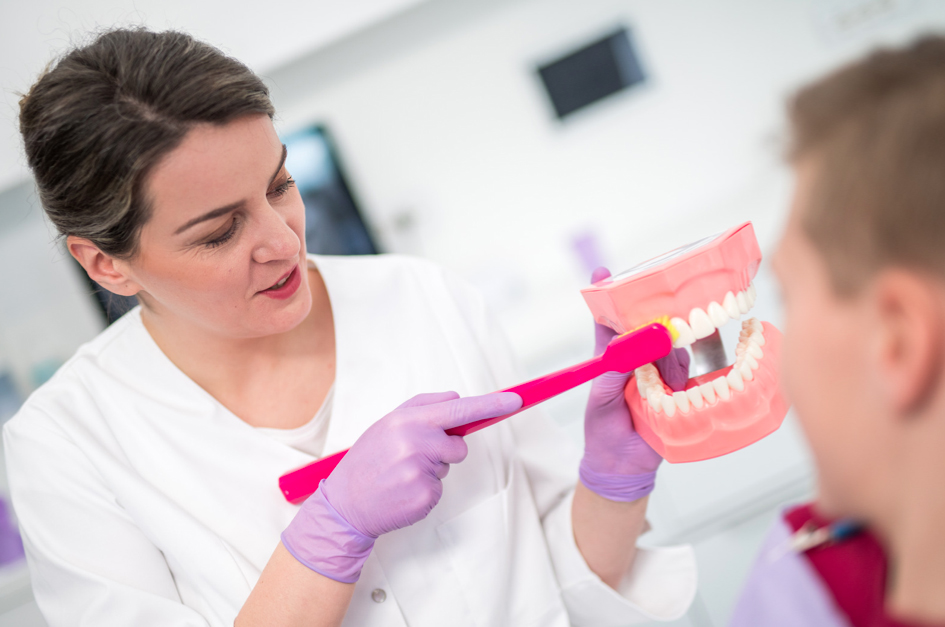
Hygiene appointments
Good oral hygiene is important to maintain healthy gums and teeth, as well as being vital to your general health and appearance. Keeping the supporting tissues around your teeth in a healthy condition increases the longevity of your teeth and reduces the risk of tooth loss. Bad oral hygiene and gum disease has been linked to systemic disorders such as high blood pressure and heart disease as well as diabetes. Our hygienist can help you understand the benefits of a healthy lifestyle and diet to improve your overall wellbeing.
At your hygiene visit your teeth and gums will be professionally cleaned to remove debris, plaque and calculus (build up). The removal of this improves the health of your gums and helps to maintain the balance of bacteria in your mouth. Our hygienist also provides you with expert advice on the methods and products best suited to you to ensure you keep your oral hygiene in excellent condition at home.
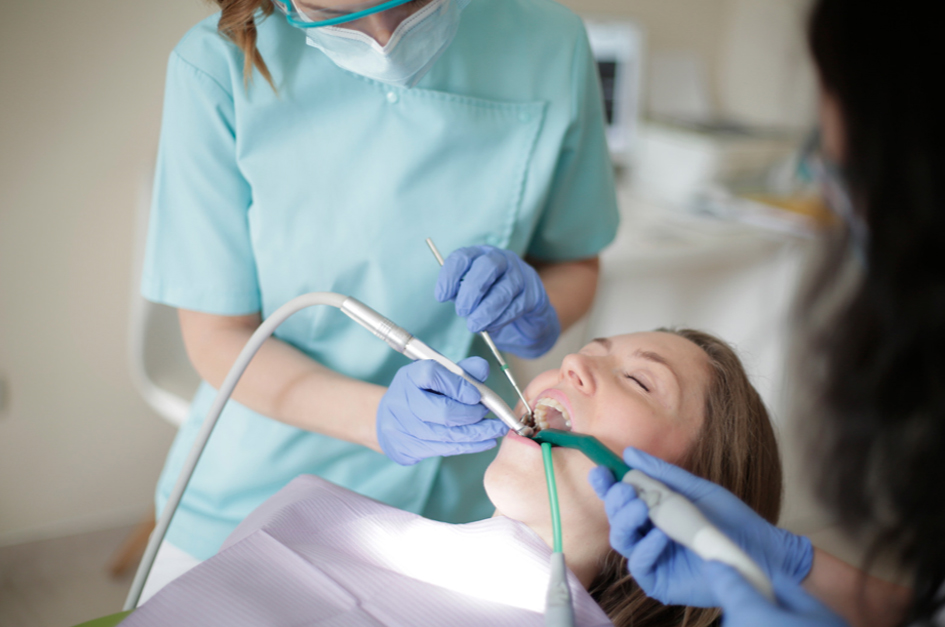
Periodontal treatment and gum disease
Gum disease, also known as periodontal disease, is a very common condition which affects the tissues that support your teeth and hold them in place. Most people have experienced gum disease at least once in their lifetime to different extents. If you have gum disease, your gums may bleed when you brush your teeth or you may have noticed bad breath.
Gum disease is caused by a build-up of plaque on the teeth. Plaque is a sticky substance that contains bacteria, some of which are harmful to the health of your gums. If you do not remove plaque by regularly brushing your teeth it will build up and irritate your gums. This will lead to redness, bleeding, inflammation and soreness of your gums. This early stage of gum disease in known as gingivitis. Gingivitis can be completely reversible however if it is not treated, a condition called periodontitis can develop. If left untreated, the bone in your jaw may become damaged and small spaces can open up between the gum and the teeth. This can cause your teeth to become loose and they may eventually fall out.
Mild cases of gum disease can usually be treated by maintaining a good level of oral hygiene, having a good at-home oral hygiene regime and by seeing the hygienist regularly. If you have severe gum disease your dentist will advise you on the best course of action which may involve deeper cleaning with local anaesthetic.
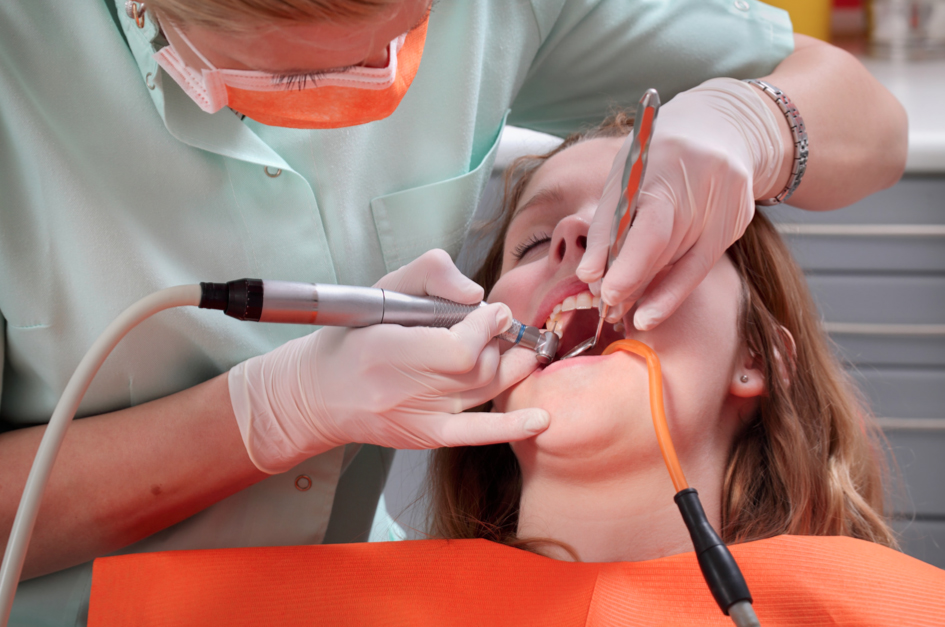
Composite (white) fillings
Having a filling is an incredibly common dental procedure that treats dental cavities and damage to teeth. White fillings offer a natural-looking alternative to traditional silver fillings. The composite is a type of resin made from a mixture of glass particles and plastic which when hardened looks just like dental enamel. It is colour matched to blend in with your natural tooth and appear as if it’s not even there! Composite fillings are typically made from durable materials however the strength of our bite, the position of the filling and whether you grind your teeth all impact the filling’s lifespan.
When you have your filling done, you will be firstly offered local anaesthetic. Sometimes it isn’t necessary, and sometimes people don’t want an injection – it’s entirely up to you! Your dentist will then drill into your tooth, removing old filling if necessary, and then remove the decayed part of the tooth leaving a remaining healthy structure. They then apply a special acidic gel to the tooth which roughens the surface to ensure the composite material will bond effectively to your tooth. Your dentist will then apply the composite material to the cavity in layers and mould it to form the desired shape. They will then set the composite with a blue light which sets it immediately. As a final touch they polish your filling to leave it looking as smooth and natural as possible.
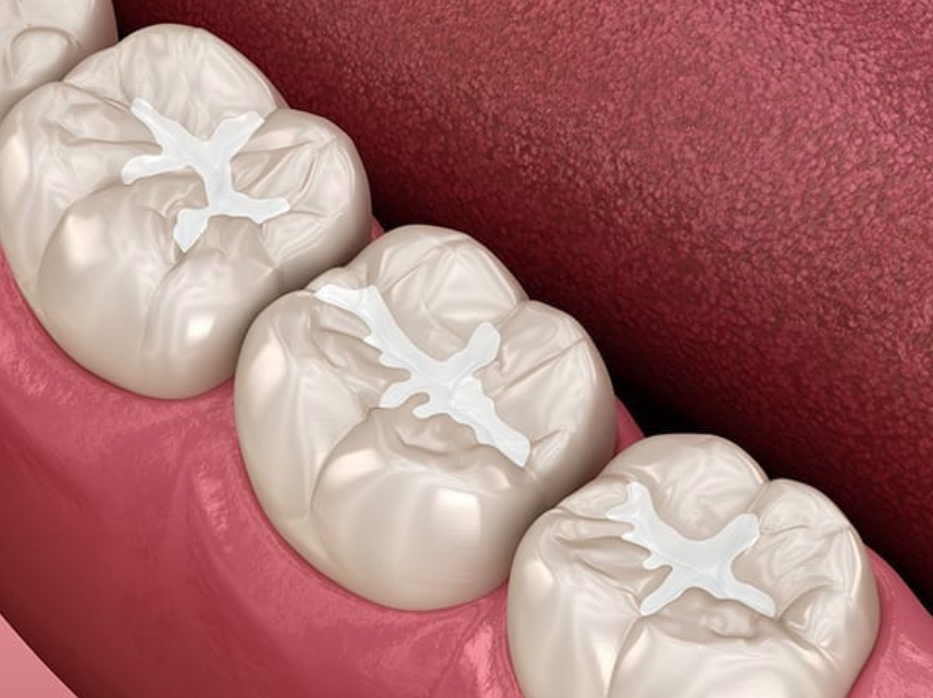
Fissure sealants
Fissure sealants are a painless way of protecting your children’s teeth from decay. It is a protective coating which is usually applied to the biting surfaces of the back teeth. Some teeth naturally have deep grooves which are more likely to trap food and be harder to keep clean. The sealant forms a smooth and hard shield that keeps food and bacteria from getting into the grooves of the teeth and causing decay.
The process is quick and simple. Your dentist will prepare the tooth with a special solution and then dry it. They will then place the liquid sealant into the grooves of the tooth and set it hard by shining a bright blue light onto it. It is pain-free, your teeth will feel normal afterwards and you can eat straight away after the treatment.
The sealant usually last for many years and your dentist will check them at your check-up appointments. They can wear over time so may need topping up every now and then.
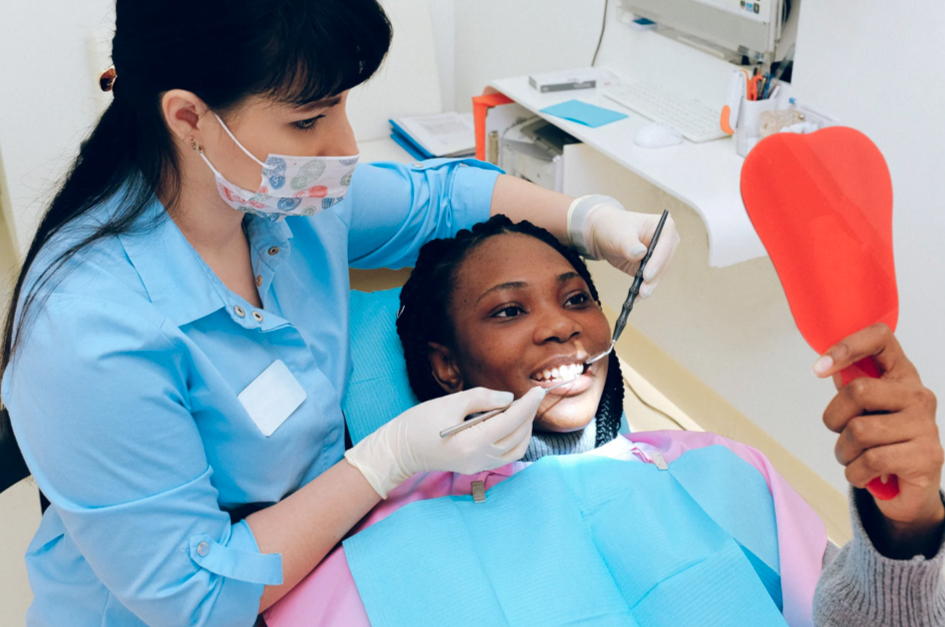
Composite bonding
Composite bonding is a quick, easy and effective way to enhance the appearance of your smile and repair small areas of damage. It can be used to close small gaps, correct irregular spacing, improve worn teeth, cover small areas of damage or brighten discoloured teeth. It is a fast, pain free and non-invasive smile transformation that is applied to the surface of your natural tooth so none of the structure of your tooth needs removing. The composite material is colour matched to your existing teeth to achieve a high aesthetic result.
Your dentist will discuss with you what you would like to achieve from your treatment. This may involve taking models of your teeth and having them made into your desired look. Your dentist will build up your tooth in layers, crafting the perfect shape and size.
The best way to look after your composite bonding is to maintain a great oral hygiene routine at home which includes brushing twice a day as well as daily flossing. The composite is securely bonded onto your teeth but it is wise to take care when biting into or chewing particularly hard things (such as crusty bread, finger nails and opening crisp packets with your teeth!) to avoid any damage.
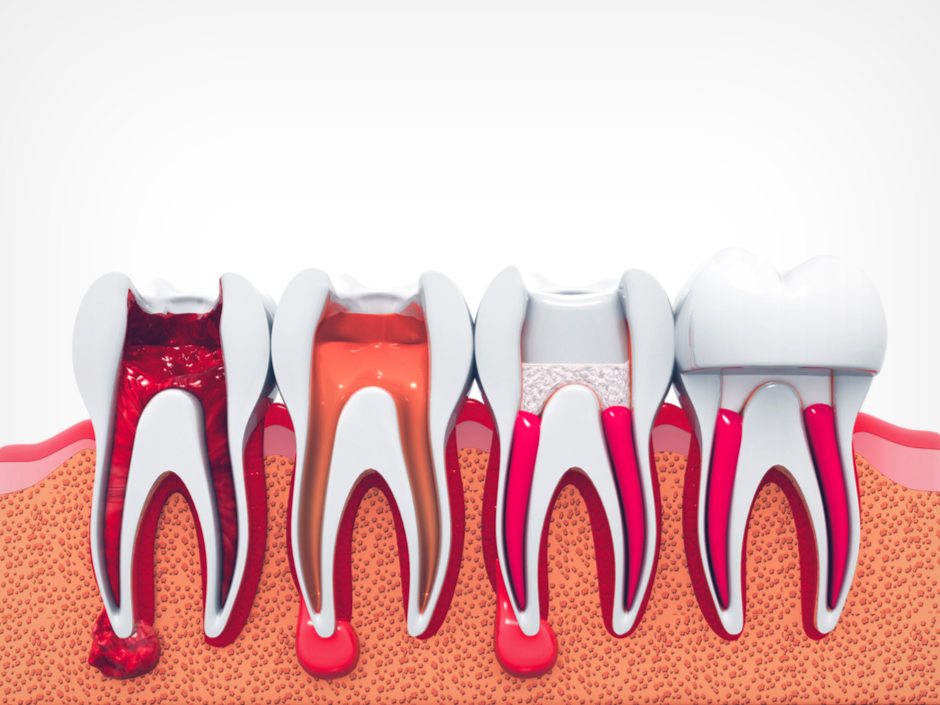
Root Canal Treatment
Root canal treatment is the only means of saving a tooth in which the nerves and blood vessels have been damaged or died. A root canal treatment is used to repair and save a tooth that has badly decayed into the nerve of the tooth, become infected or damaged due to injury or trauma.
The treatment involves the removal of the nerve of the tooth and then disinfecting the inside of the tooth with an antibacterial solution. The root canals are then filled with rubber and the tooth is sealed to prevent re-infection. Once the tooth has healed you will be able to use it normally however it is usually recommended to have a crown placed on the tooth to prevent any fractures as the tooth is now more brittle.
Without treatment, the tissue surrounding the tooth will become infected and may form an abscess. This could result in pain and swelling as well as the loss of the tooth. Antibiotics are not effective in treating root canal infections as they do not resolve the underlying problem.
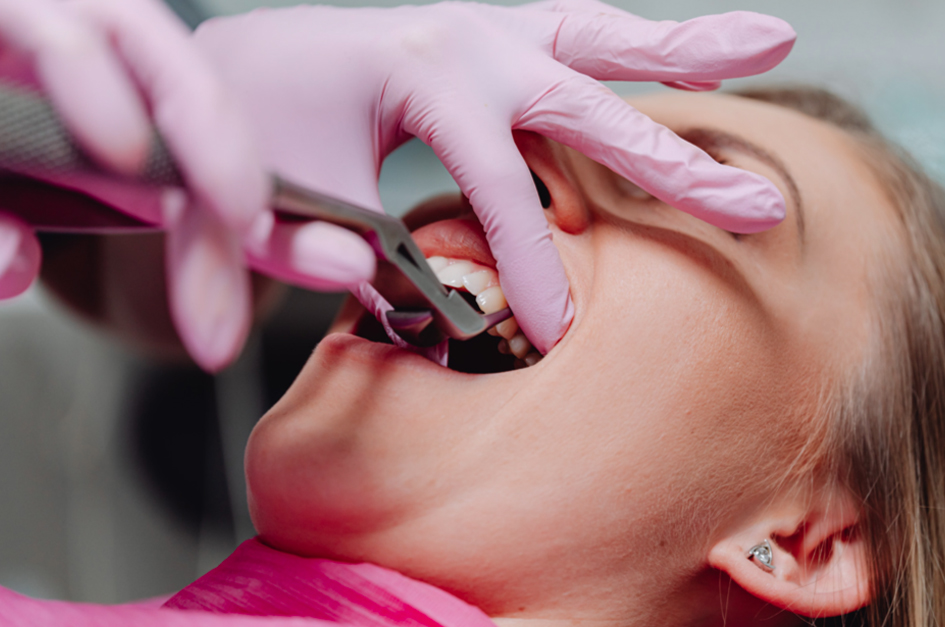
Extractions
An extraction involves the complete removal of a tooth and/or its roots. This is normally carried out when a tooth/root presents with a very poor prognosis due to it having a major issue associated with it.
Each tooth is different, and some will come out a lot easier than others. There are many factors which can affect the difficulty of an extraction. As with any procedure, there are always possible risks and complications involved and it is therefore important that you are fully aware of these prior to consenting to the proposed treatment. Your dentist will discuss these with you prior to your treatment.
Before the procedure begins, you will be given local anaesthetic to ensure the tooth and surrounding area is numb. Your dentist will carefully check that it has gone completely numb before removing your tooth. You may feel pressure during the extraction but there should be no pain. Once your dentist has removed your tooth, they will explain the recovery and aftercare process. It is a good idea to have some painkillers readily available for when you get home. It is important that you come back if you start to experience increased discomfort after a few days as this may be a sign of an infection that could be easily remedied.
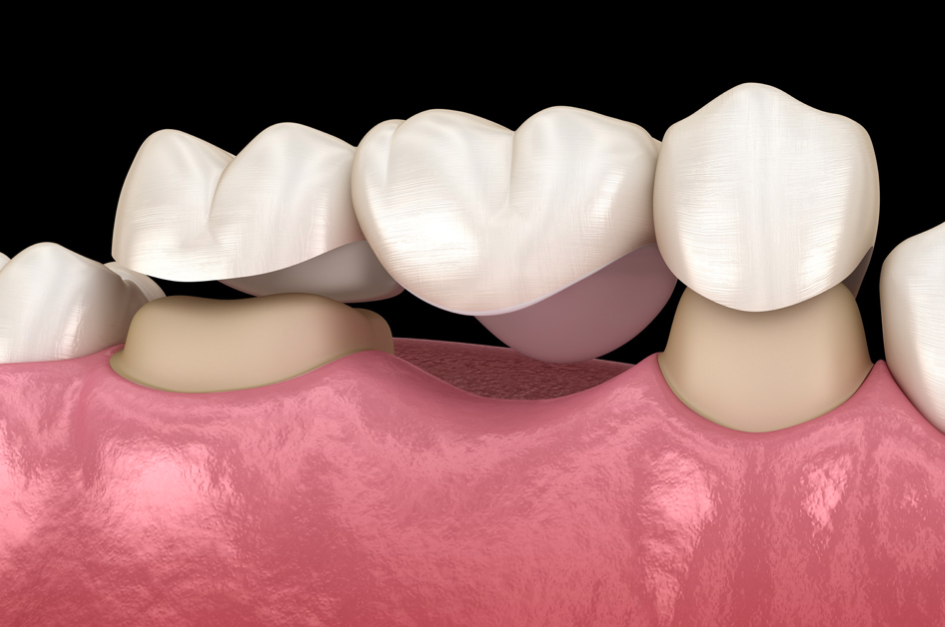
Missing teeth – Dentures, bridges & implants
Having missing teeth can not only affect your confidence but also your mouth’s ability to function and chew food effectively. There are 3 options to replace missing teeth:
Dentures Removable dentures are custom fit to you. They come in a variety of different materials which are usually either acrylic, metal or a specialist flexible acrylic. They can replace multiple missing teeth as well as improving your speech and function.
Bridges Bridges are a fixed alternative to dentures and require the support of adjacent teeth. They consist of false teeth which are fixed to existing teeth to fill a gap. They replace one or two teeth in one area of the mouth. This often requires preparation of these adjacent teeth. Bridges are custom made in a dental laboratory from impressions of your teeth.
Implants Implants are screw-like fixtures made from titanium. They are placed directly into the jawbone to replace single or multiple teeth. We do not offer this at Kings Mills, however if this is an option your dentist can refer you to an Implantologist.
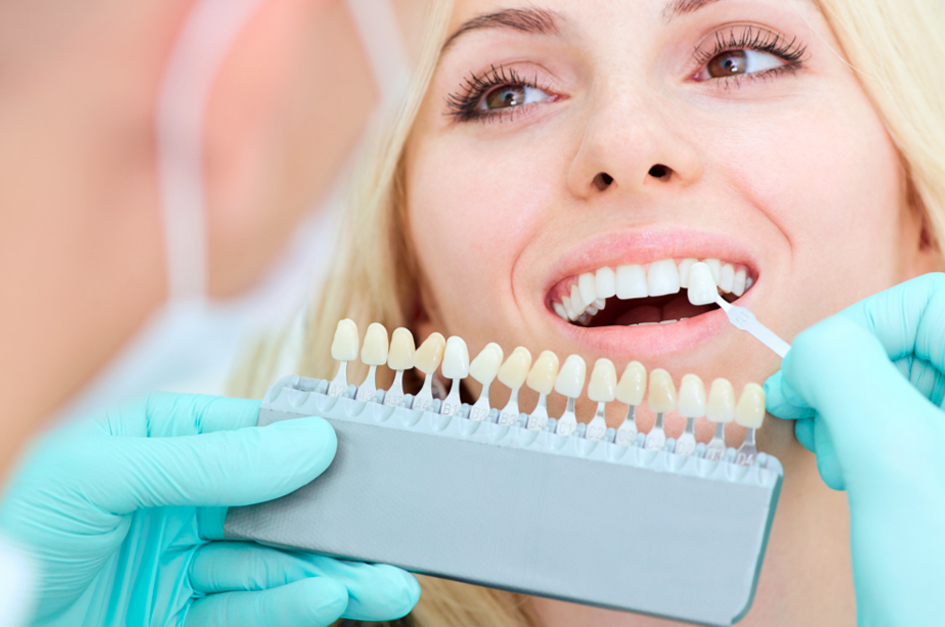
Teeth whitening
Little things we do in our everyday life can impact our smile. Teeth can discolour for a number of reasons including food and drink you consume, smoking, medications, alcohol and trauma. Teeth whitening can be used to lighten teeth, resulting in a brighter smile.
The only people in the UK who are legally authorised to administer this treatment are GDC registered dentists. This is to ensure the safety of you and your oral health. Any person who is provided teeth whitening treatment who are not GDC registered, are doing so illegally.
At Kings Mills, we use an at-home whitening treatment. This means you can whiten your teeth overnight and at your own pace. We take an impression of your teeth which will be sent to a lab to make you a custom teeth whitening tray. You will then be provided with your gels and all the information you will need for a successful teeth whitening experience. Initial results will normally be seen after as little as 5-8 days with results usually achieved after 2-3 weeks. The effect of the whitening can last up to several years however it is recommended to do regular top ups every 6-9 months or as needed.
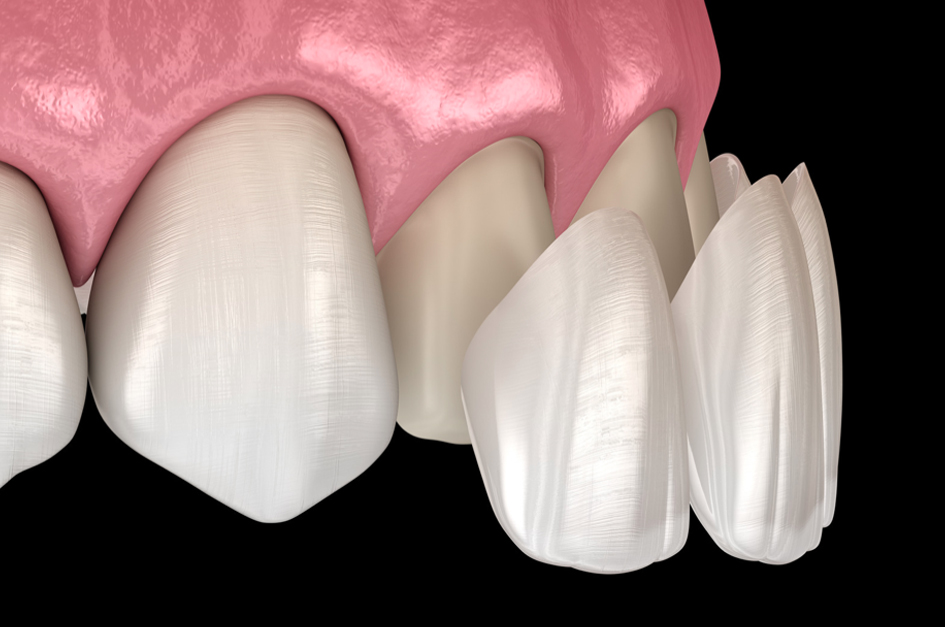
Veneers
A functionally sound tooth can have imperfections that are aesthetically displeasing. These teeth can be suitable for veneers.
Veneers are thin, custom-made, tooth coloured shells which are fitted to the front surface of your tooth. They can be made from porcelain or ceramic materials to create a natural looking finish. They are commonly used on front teeth to enhance and/or change the appearance of your smile, effectively covering small areas of damage, mask discoloured teeth, close gaps and change the shape of one or more teeth. Veneers are strong and durable as they are securely fixed to your natural tooth. It is a minimally invasive treatment, as only a small amount of enamel structure, if any, needs to be removed in preparation for the veneer.
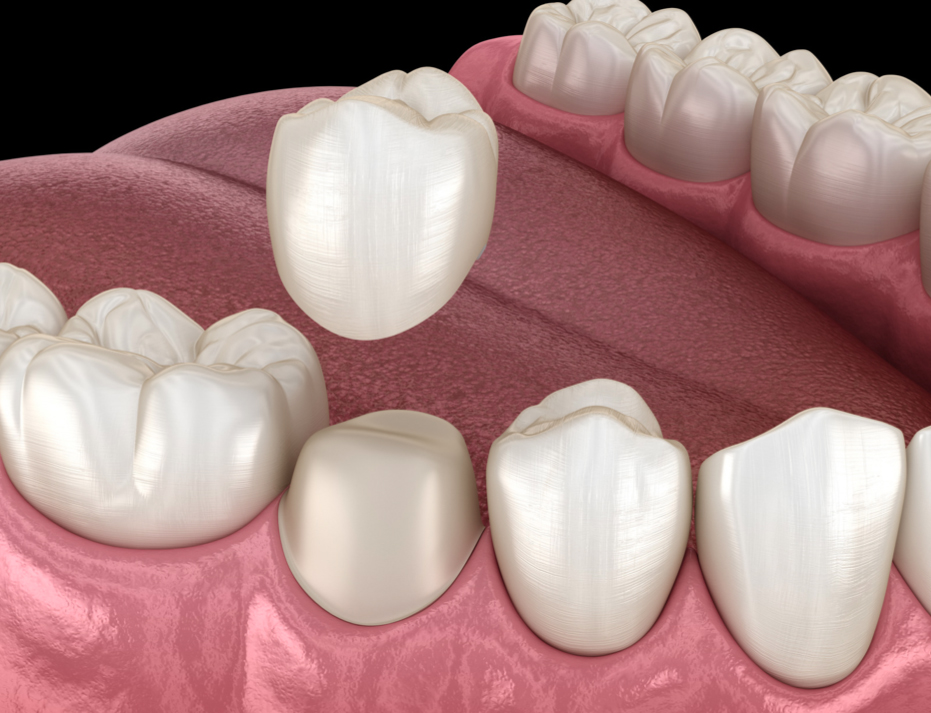
Crowns / Onlays
Crowns and onlays are made from a variety of materials including gold, metal, porcelain or a combination. They are personalised to each patient and made in a specialist dental laboratory. Teeth which may be badly broken or have been heavily treated such a root canal treatment, may benefit from either a crown or onlay.
A crown (also known as a cap) is an artificial tooth used to completely cover a tooth in order to restore and protect it to its highest function. A dental crown is often placed following root canal treatment to strengthen the tooth and protect the remaining tooth structure, or when most of the tooth is made up of filling material. Patients often opt for porcelain crowns as they can be colour matched to the other teeth to achieve a natural appearance.
Onlays or inlays are restorations for teeth that have been damaged by decay or have severely fractured. Dentists will use an onlay to replace the tooth cusp and protect the tooth structure and mitigate further damage. Onlays only require the removal of the affected area of the tooth allowing minimal treatment.
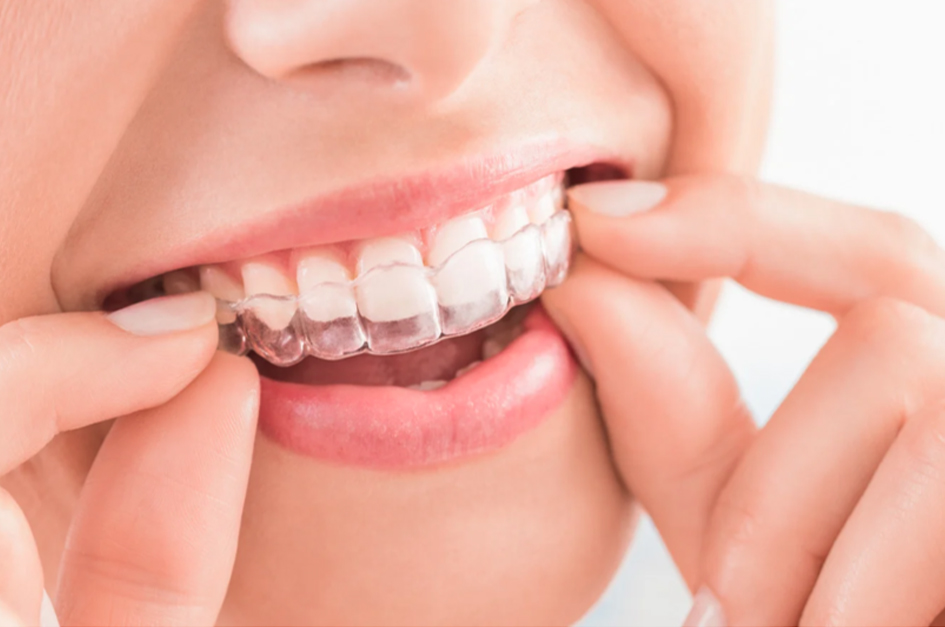
Retainers
If you have had orthodontic treatment, whether that’s fixed braces or aligners, your practitioner would usually recommend wearing retainers. Once the position of your teeth has been altered, the bone and soft tissues need time to adapt. It is really important to wear your retainers so your teeth stay in their corrected positions. They should be worn on a long-term basis if you wish to keep your teeth straight. If you don’t wear them on a regular basis it will likely result in the teeth moving which may require re-treatment.
They must be cleaned on the inside with a toothbrush and soapy water. Do not use hot water as this can distort the retainer. They can also be soaked in a Retainer Brite solution to keep them thoroughly clean.
If your retainers get lost or broken, please contact us straight away so we can start the process of making you new ones as your teeth can move very quickly. We can make you retainers whether you have had orthodontic treatment with us or not.
If you have been fitted with a bonded/fixed retainer, this should be kept in place for at least 5 years and regularly monitored by your dentist to make sure it hasn’t come away from any of the teeth.
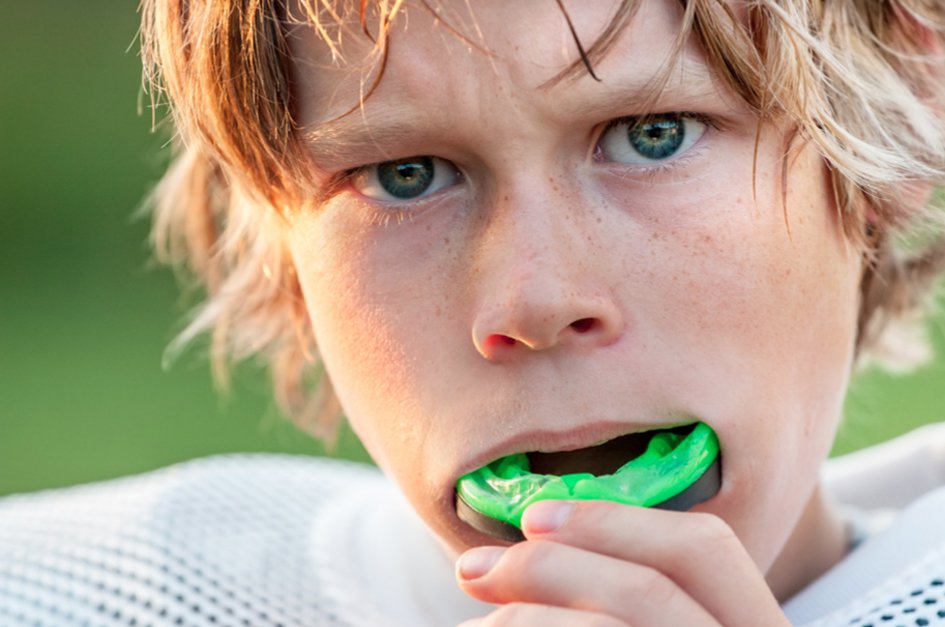
Mouthguards / gumshields
If you play contact sport, you are usually advised to wear a mouthguard to reduce the risk of damage and trauma to your teeth. Mouthguards cushion any blows to the face. Injuries in nearly every contact sport, such as rugby, hockey, lacrosse and kickboxing can result in damage to your teeth, lips, cheeks and tongue. This makes a mouthguard an essential part of your sports kit!
The most effective mouthguards are custom-made by your dentist. These are professionally designed from models of your teeth and are tailored to you. This means that they are secure in your mouth, cushion your entire jaw and do not interfere with your speech or breathing. The laboratory we use to make your mouthguard offer many different designs and colours so you get complete control over your custom-made design.

Grinding teeth and jaw problems
Teeth grinding is the act of involuntarily grinding your top teeth against your bottom teeth. This usually occurs when you are asleep or preoccupied with a certain activity and a lot of the time you don’t realise you are doing it! Teeth grinding is related to jaw clenching which is where you clamp your teeth together. Chronic tooth grinding is known as bruxism.
The most common cause of grinding is stress and anxiety. Anxiety or worries buried in our minds can cause us to clench our teeth. Other common causes are age, our personality type, medications, alcohol/drug use as well as mental health and medical conditions.
The most effective way to treat teeth grinding is to wear a specialised sleeping appliance known as a bite guard or night guard. These are very similar to a mouthguard or retainers and are comfortable to wear without disrupting your sleep. They provide a cushioning barrier to stop the teeth from fully coming into contact with each other and therefore help to prevent further wear and tear on the teeth. They are comfortable to wear and become accustomed to the mouth. Focusing on relaxing your jaw through certain exercises also helps to relax jaw tension. Speak to your dentist if you would like any help and advice.

Orthodontics
Not everyone is lucky enough to have perfectly straight teeth, many people have crowded or crooked teeth, or their teeth do not correctly meet when they bite. These problems can mean it’s harder to keep your teeth and gums clean and therefore can impact on your oral health.
Orthodontic treatment is used to improve the appearance and alignment of teeth, protruding or crowded teeth and problems with the bite. Benefits include correction of crowding, aesthetic improvement, being able to bite evenly and reducing the chance of damage to any prominent teeth.
At Kings Mills, we offer fixed braces for both children and adults. These consist of metal brackets and wires that are fixed to your teeth for the duration of your treatment. The wires apply constant but gentle pressure to move the teeth into the desired position. We offer treatment to anyone in Guernsey, whether you are a patient here for your general dentistry or not. We accept referrals from other general dentists, or we will see you without a referral. Please contact us if orthodontics is something you are interested in.
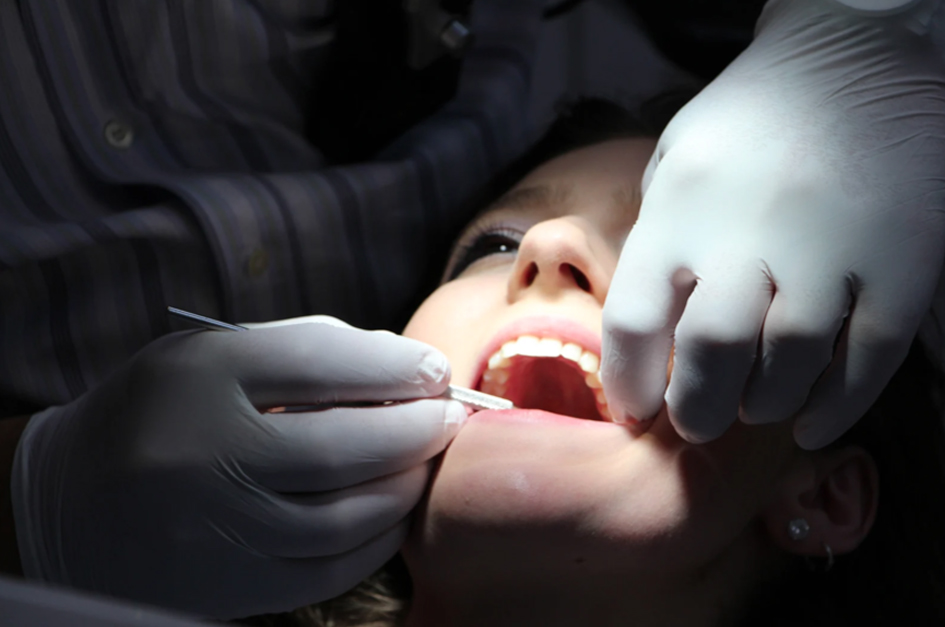
Soft tissue surgery
Soft tissue surgery is the removal of the whole or part of a lesion which is present in the mouth. This can be either to get rid of something that annoys you, remove something that looks sinister or to find out the cause of a lesion. Most of the time the lesions removed are benign but we always send them to a specialist lab to confirm the diagnosis.
A fraenectomy may be required before or during orthodontic treatment to allow gaps in teeth to be closed. This simple procedure involves snipping the fraenum which is the bit of skin that attaches your lip to your gum. It is then reattached further away from the teeth.
We also offer tongue tie release for children and adults. This is a simple procedure but the removal of a tongue tie can help improve speech problems and feeding issues.
All the soft tissue surgery at Kings Mills is carried out by Dr Louise Toney who has a special interest in oral surgery and has carried out many different procedures both here and during her time in hospital oral surgery departments.
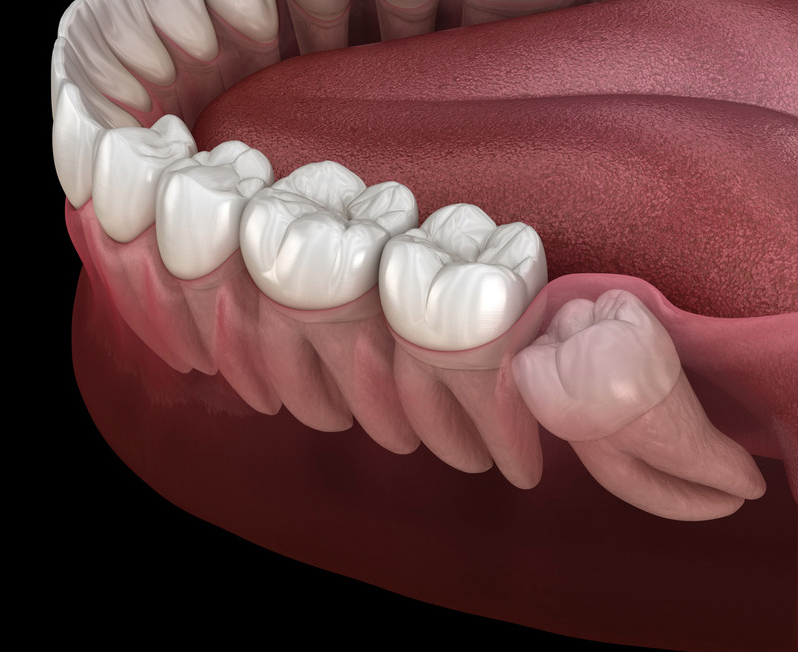
Wisdom teeth
Wisdom teeth are your third molar teeth and are the last to come through. Most people have two wisdom teeth in the upper jaw and two in the lower jaw. Due to lack of space in your mouth, sometimes wisdom teeth may still be buried under the gums or can sit at the wrong angle. A wisdom tooth is impacted when it is obstructed from erupting fully, either by the tooth in front of it or the surrounding bone. Sometimes if the tooth has come through slightly but cannot come through all the way it can result in recurrent gum infections known as periocorinitis.
Wisdom teeth that haven’t erupted fully are breeding grounds for bacteria. This can cause tooth decay, infection and even affect its neighbouring teeth. If the tooth has partially come through and still has some gum over the top, it can also cause pain and swelling sometimes to the point of not being able to bite down fully.
If you have problems with a wisdom tooth, your dentist will advise you on the best course of action. This can be as simple as showing you some at home measures to reduce the symptoms, or could be the removal of the wisdom tooth. The removal of the tooth could either be a simple extraction or a more complex surgical procedure. This will be discussed with you by your dentist. Lower wisdom teeth can be close to your nerve that supplies sensation to your lower lip so sometimes precautionary measures need to be taken. Your dentist will advise you on the type of procedure that is appropriate, and whether this is done in the dental chair with local anaesthetic or in the hospital under general anaesthesia.
